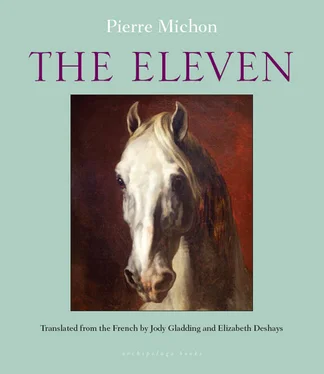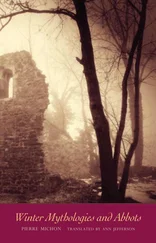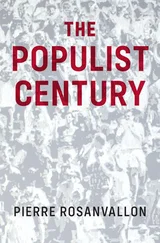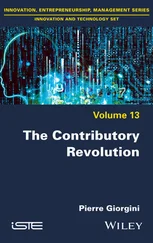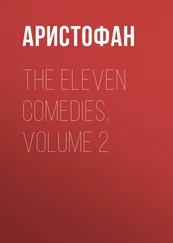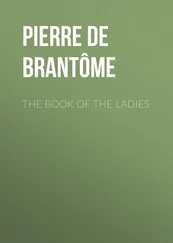With Suzanne’s money, the money of the faithless Huguenot: because the wine merchant was not dead, and kept a tight hold on his coins. And Suzanne’s money, the vineyards and the boats, he devoured; far from Suzanne he squandered them in anacreontic rhymes; as he did Suzanne’s soul, as he did her neglected body.
With a new name as well. He gave himself a false de , which was then common practice among the literati, which was not really an affectation but a matter of etiquette, like wearing powder or a wig when others did so, a way of removing his hat in greeting, replacing it to speak. So he cobbled together a new name for himself; and for his choice, I cannot help thinking that he modeled it a little on his father-in-law’s, the old apostate who, out of bravado or a taste for jokes, did not renounce his Huguenot given name at the time of his reconversion, and, becoming rich under the Marquis de Louvois while most men called Élie lost their names in the king’s galleys, persisted in calling himself Élie and commanding respect under that name. Perhaps bitterly, perhaps with pride and defiance, Corentin made the nickname of the old mason, his father, into a title of nobility and entered the world of letters under the name of Corentin de la Marche . Alas, we know that this name has fallen into oblivion — the one on the little plaque at the Louvre, that we can hardly make out leaning over to read it, but that shoulders The Eleven , is the other one, the simple little functional mark without flourish, without wig, powder, or white stockings: François-Élie Corentin, simply Corentin.
Yes, all of that, the money, the name, Paris, it was all for nothing; in the hand of time, François Corentin de la Marche was too close to an illiterate old mason: the chain of generations was too tight and strangled him. The world’s heel was raised just above the mole’s snout. And although he had a healthy appreciation of literature, he could not excel in its practice. In this story, literature’s only raison d’être is to aid the vocation of the one who did excel — not in letters but it amounts to the same thing — the son, the painter, and to drive to despair two women in love with love.
Corentin was the son of a man who chose literature, who sacrificed everything to it and was broken by it. A man to whom letters gave, in turn, hope, spite, and shame. Because if it happens that Limousins choose letters, letters do not choose Limousins.
What are you thinking about, Sir, before the great glass, behind whose reflection there are raised figures who are facing you? You are a reader, Sir, you are part of the Enlightenment, too, in your own way, and consequently you know a little about these men behind the glass, you have heard about them at school and in books; and moreover, just before entering the square hall on the upper floor of the Flore pavilion where The Eleven stands, to the exclusion of all other paintings, you meditated in the small explanatory antechamber with its walls of diagrams, charts, reproductions, enlarged details, historical and biographical notes on the men behind the glass; you read the lengthy spread on François-Élie Corentin, the spread that occupies the entire wall to the right as you enter, and the little inset on his father, François Corentin de la Marche; so perhaps this is what you think: behind the glass there are eleven appearances of Corentin de la Marche. Corentin de la Marche eleven times. The father and his vocation, his alibi, eleven times. Eleven times the hand with the pen, the author — but the uncertain, lost Limousin author. All of them the lost offspring of literature, one and indivisible: for they loved glory, the idea of glory, above all else, their presence behind the glass attests to it; and pure glory, in those times as in others, came through literature, which was the occupation of men. Let us take them one by one, the great raised figures, the figures who would have much preferred to be raised unchanging to the face of History as authors rather than commissioners, figures of Homer rather than the combination of Lycurgus and Alcibiades by which we know them, but who are raised nevertheless, and flagrantly so, by this unexpected detour. And perhaps they are surprised that glory came to them by this route; surprised that the occupation of a man is commissioner — and not author.
Thus from left to right, the eleven authors: Billaud-Varennes, erstwhile de Varennes as Corentin was de la Marche; whom the Sans Culottes called the Roussin d’Arcadie because of his red hair and his taste for Anacreon; Billaud, who wrote the opera Morgan ; the opera Polycrate ; who is perhaps conscious, under his red wig in the Louvre, of having begun by making his small début at La Rochelle with Une femme comme il n’y en a plus , a comedy; yes, under the fiery wig in the Louvre, it is that light comedy he is thinking about, those light lines he is saying to himself; and once again under his serious countenance he is amazed that those plays never caused the least stir, could have fallen unintercepted from his hand into oblivion. Come, Sir, let us continue: Carnot, who belonged to the poetry society, the Rosati of Arras, with Robespierre, and in that rivalry of young Rosati poets began to love and hate Robespierre; whose eclogues to the little Roman gods, Bacchus, Liber, Pomona, brought him his first fame; whose true vocation was really not to bathe Europe in blood, to blow the northern evergreen forests and the pastoral oak groves to shreds with his canons, to offer the generals of fourteen armies the very simple alternative of victory or the guillotine, but to take strolls in large gardens on summer afternoons under the fresh leaves with his little notebook under his arm, summoning the beings of freshness, Bacchus, Liber, so that in the little notebook in the language of the gods, Bacchus and Liber would confer upon Carnot his immortality; who is known for all the rest, the guillotine, the canons, not Liber. Under the same reflecting glass beside Carnot, Prieur, officer and unread elegiac poet from Mâcon, and the other Prieur, lawyer and unread epic poet from Châlons. And then the brilliant yellow, the chair, that never wrote anything. And right in the middle of the yellow radiance, Couthon, who gave us one tragedy full of sensitivity and tears (you have already forgotten the title, Sir, which you nevertheless read in the little antechamber), tears and sensitivity lavished for nothing on the basalt audiences of the black town of Clermont in the Auvergne: on his lemon yellow chair at the Louvre at the center of the painting, on his citrine, sulfurous, solar, paralytic’s chair, tearfully he repeats to himself the black fall of his tragedy, among the fallen heaps of basalt. Robespierre, who needs no comment. Collot, ah Collot, Sir, on whom we can comment until tomorrow; who was d’Herbois as Corentin was de la Marche; who was a man of the theater, actor, playwright, something of a second Molière; who wrote fifty plays which sold well and played well (but fell directly from his hand into oblivion), among them Nostradamus ; who drank enough for four to call forth the word and not to see that his words fell straight from his hand into oblivion; who translated Shakespeare and played him in costume on a cramped stage before playing him in earnest on the stage of the universe, that is, in Lyons in November on the Brotteaux plain where, on his orders, men bound by tens, by hundreds, were led before open pits, and ten meters away from these men were the mouths of loaded canons, nine marine canons brought up from Toulon on the river, nine gunners standing at attention, the fuses lit, in November, and Collot was there not in Elizabethan ruff but wearing the hat à la nation , the sash à la nation , standing, Shakespearean, melancholic, crazed, Limousin, perhaps drunk, with his arm raised and his sword extended like a maestro’s baton to order them to fire, and when Collot lowered his arm the world disappeared leaving in its place the excitement of nine marine cannons: which is stronger, Sir, stronger and more intoxicating and even perhaps more literary than all the lines from Shakespeare, you feel it in your secret heart, because you do have one; so there is Collot, good Shakespearean that he abundantly proved himself to be when he did Macbeth on the Brotteaux plain, and who, in the Louvre in his open collars, his black triple-collared coat, his white double-collared shirt, and over them his impeccable black greatcoat like the cloak of Mozart’s Queen of the Night, is surely thinking for eternity of that great leading role. And, to conclude, the others: Barère — at the time when he was Barère de Vieuzac (as the elder Corentin was de la Marche), he wrote a Eulogy for Louis XII , which was perhaps his masterpiece and which was awarded an ear of wheat at the Floraux de Toulouse competition, that is to say, a consolation prize, a certificate of merit (can you imagine, Sir, a certificate of merit for his masterpiece?); he was in charge of the arts for the Committee, and someone gave him the marvelous name of Anacreon of the guillotine. Lindet — he had a literary correspondence. Saint-Just — he wrote Organt , a poem of a thousand lines. At eighteen years old. A Rimbaud à la nation . And Saint-André, Jean Bon Saint-André, whom I do not recall having any literary ambition, because there must be an exception to confirm the rule.
Читать дальше
